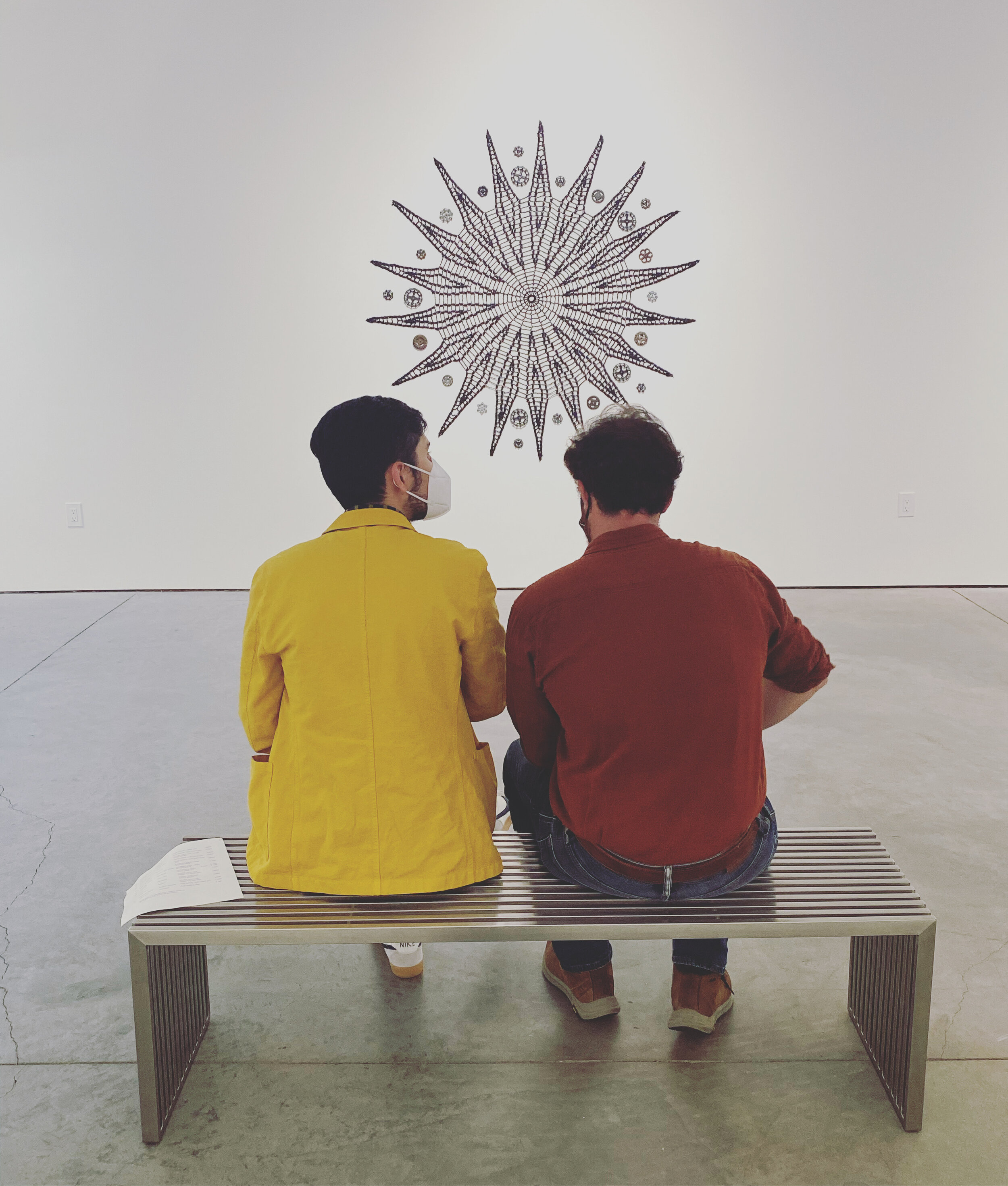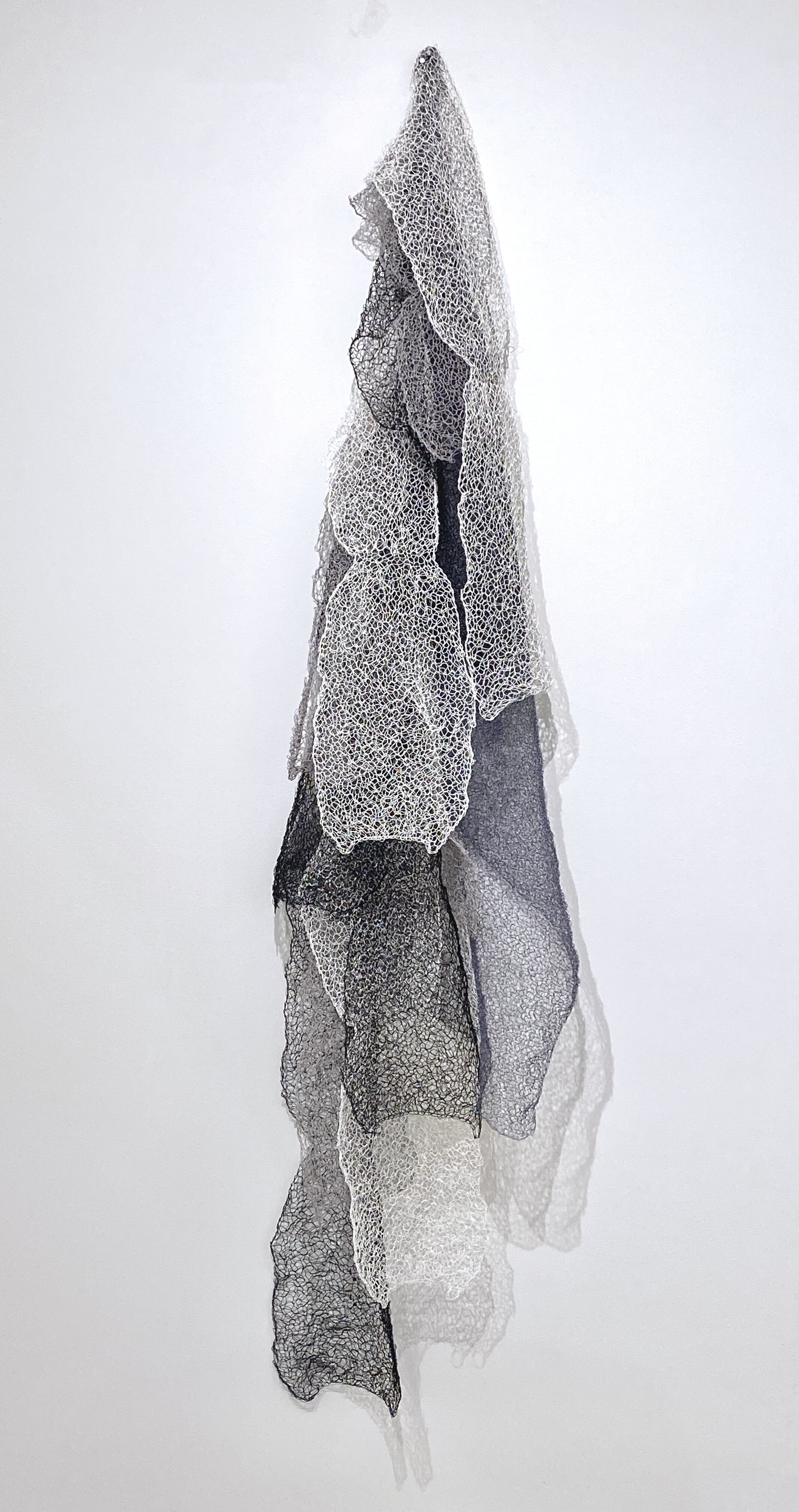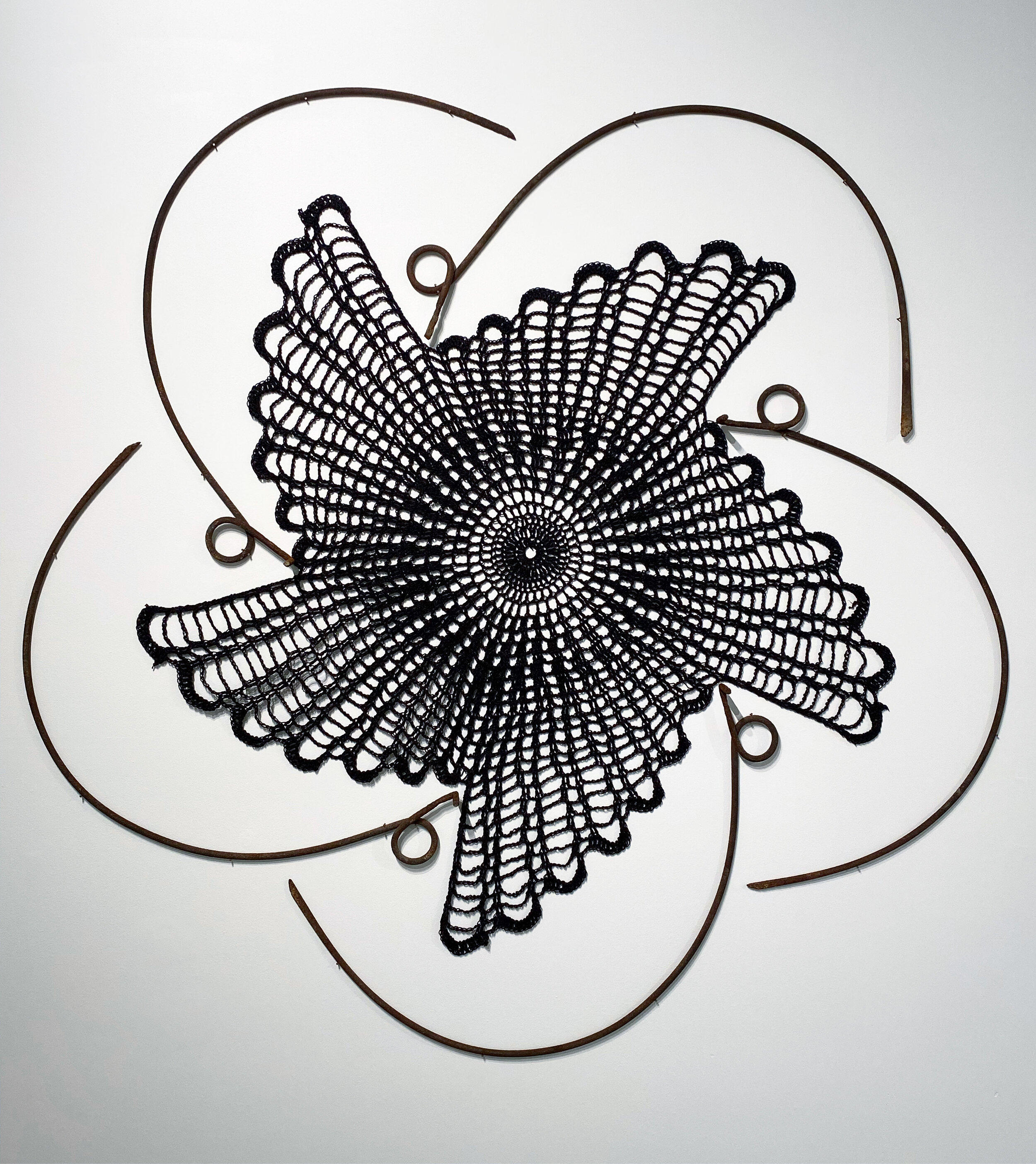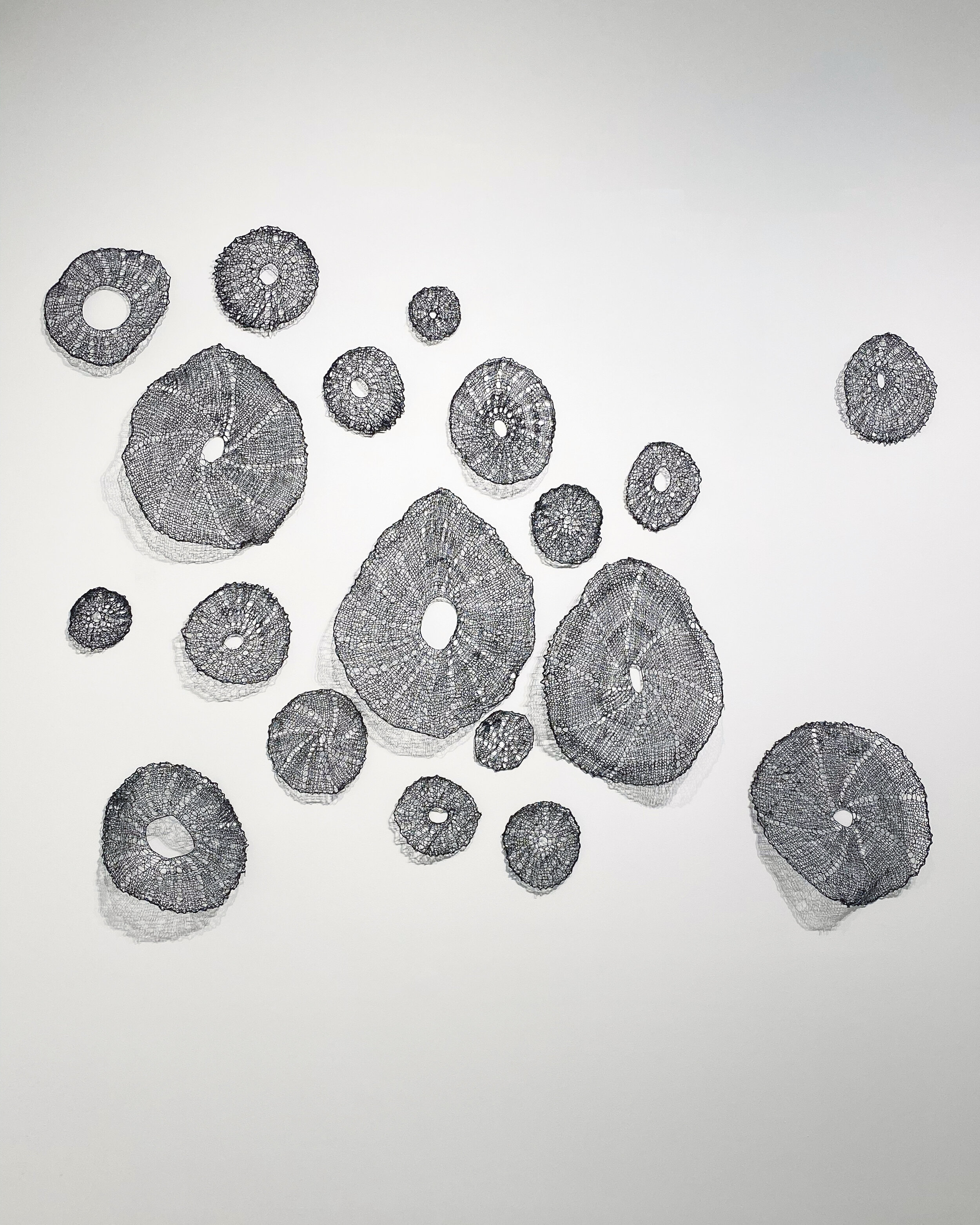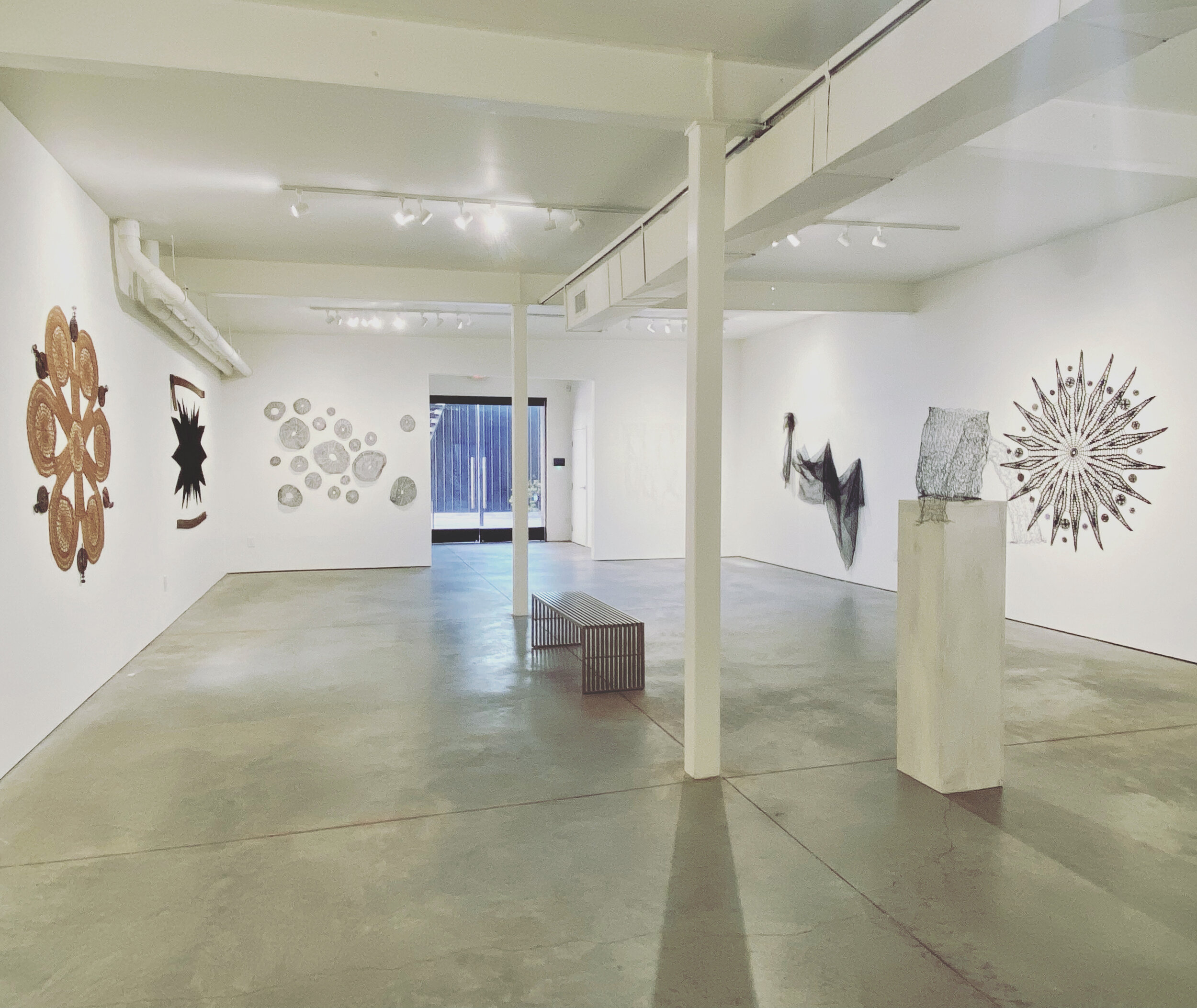Emptiness and Substance
Bette Levy and Deborah Levine
9.24 - 10.30
“Beyond the edge of the world there’s a space where emptiness and substance neatly overlap, where past and future form a continuous, endless loop.”
- Haruki Murakami, Kafka on the Shore, 2002
Quappi Projects is pleased to present Emptiness and Substance, works by Louisville-based artists Bette Levy and Deborah Levine. The pair, since meeting through LAFTA (Louisville Area Fiber and Textile Artists), have been in each other’s orbit for some fifteen years, but this marks the first time their work has been jointly exhibited. Combining traditional techniques such as knitting and crocheting with unexpected, contemporary materials, Levy and Levine explore the complexities of labor, functionality, and gender norms and expectations, as well as the convergence of craft and an aesthetic minimalism.
Bette Levy has been working with her hands for the bulk of her life, having learned various techniques at an early age from her mother, who was a painter, sculptor, and costume designer and her grandmother, who was the creative designer for a beaded handbag company, which was the family business. Following a career in art therapy, Levy has been a full-time artist since 1992, and her practice has included needlework since its inception. She has never been cowed by unusual media—pig gut is one of her signature materials—and several years ago began juxtaposing hand-crocheted pieces with found industrial elements in order to contrast dual modes of production and the dichotomy of labor traditionally ascribed to men and women. There is no hierarchy in Levy’s work; she honors equally the handmade and the mechanical, the sedentary and the physical, and the indoor and the outdoor, by her efforts rescuing both from a kind of imminent futility and obsolescence. A satisfying equilibrium is achieved between the crocheted and hand-knitted pieces, where labor is plainly evident—a stitch or a knot or a loop equals time—and the salvaged rusted tools, which we more instinctively associate with work, but in reality offer not proof of activity but its residue.
Like many artists, Deborah Levine is drawn to her medium of choice simply because of the process. She takes great pleasure in the act of knitting and is energized by the repetition and rhythm of creating. As is the case with Levy’s work, Levine’s bears a record of her actions; each loop is made by hand, and the pieces are entirely comprised of—and held together by—connected loops. Bothered by the regular dismissal of both craft techniques and so-called “women’s work,” she has been experimenting with scale and materials in order to challenge and subvert these respective categorizations. Having wandered into the realm of sculpture, Levine’s work, most of which can be displayed in numerous ways, possesses a playful elasticity. Using methods essentially rooted in mathematics—which is also the architecture and engineering of the natural world—these works are constructed with inorganic materials yet take on inorganic shapes, reminding us that definitions, boundaries, and even materiality itself, are things neither fixed nor immutable but blurry, flexible, temporal.
- John Brooks
Bette Levy (b. 1944, Pittsburgh, Pennsylvania) holds a BS in Experimental Psychology from Carnegie Mellon University, as well as an MA in Art Therapy and an MA in Fine Arts from the University of Louisville. She was founding member of LAFTA, was the long-time Director of the Patio Gallery at Louisville’s Jewish Community Center, and is a member of PYRO Gallery and ENID: Generations of Women Sculptors. Her work has been featured in numerous solo and group exhibitions, including at 21C Museumhotels and in the KMAC Triennial.
Deborah Levine (b. 1953, Stamford, Connecticut) holds a BA in English, BS in Environmental Horticulture, and MS in Botany from the University of Connecticut, as well as an MA in Fine Arts from the University of Louisville. Her work has been featured in numerous group exhibitions around Kentucky and the United States, most recently at Yew Dell Botanical Gardens.
Bette Levy’s crocheted works employ patterns
by Hulya Toprak, used with permission.
